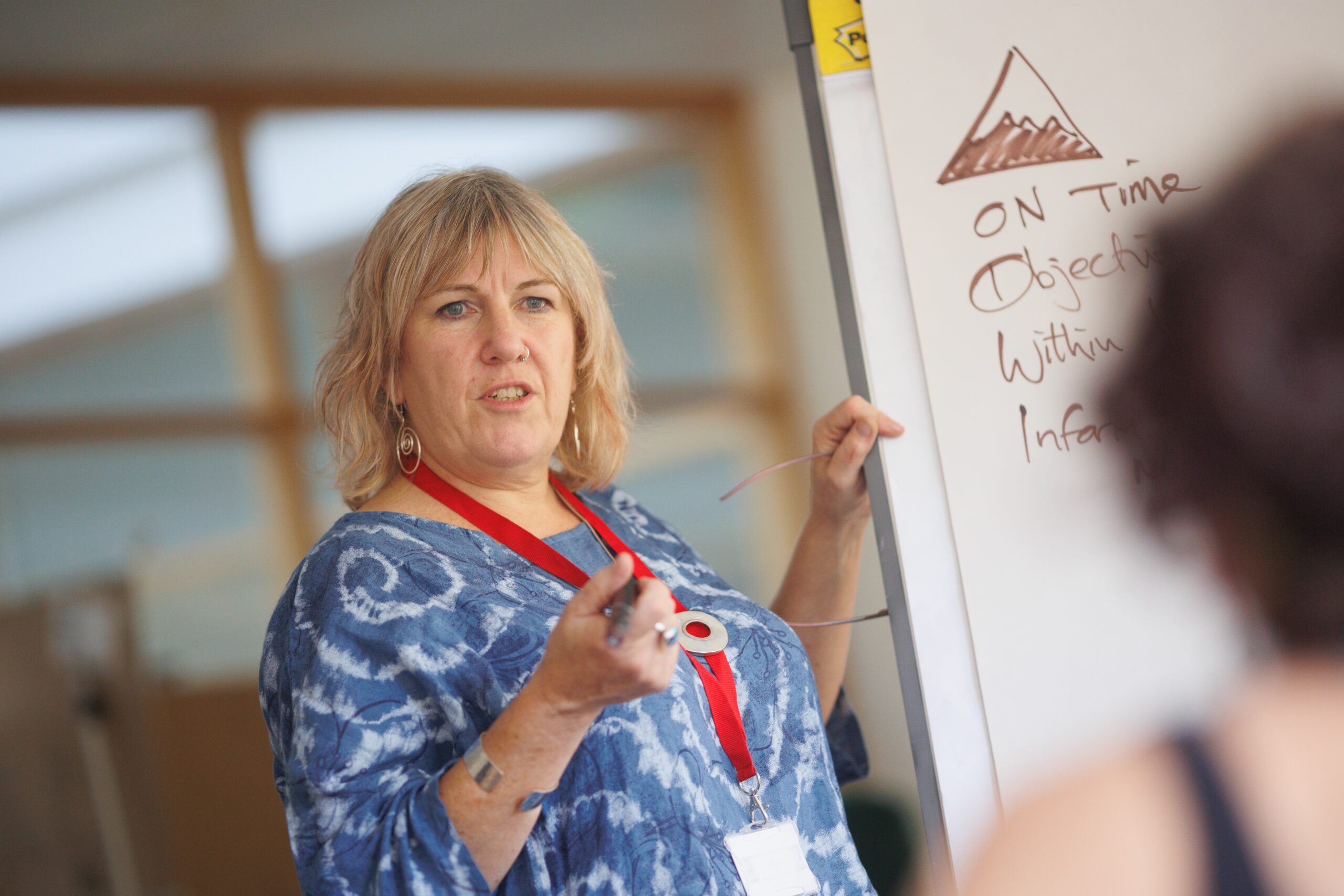Teaching Consent And Boundaries: Important Conversations For Adolescents
In this article, you will explore the significance of teaching consent and boundaries to adolescents. It is crucial to have these important conversations with young people, as it equips them with the knowledge and skills necessary to navigate healthy relationships. By understanding the principles of consent and establishing personal boundaries, adolescents can develop respectful and mutually beneficial connections with others, promoting their overall well-being. Join us as we delve into the importance of empowering adolescents with the tools to navigate relationships in a safe and respectful manner.

Understanding Consent
Consent is a crucial concept that everyone should understand. It is the process of willingly and voluntarily agreeing to participate or engage in something, whether it is a physical activity, emotional interaction, or any other form of engagement. It is important to recognize that consent must be given freely and without coercion or manipulation. Consent is an ongoing process and can be withdrawn at any time. It is essential for individuals to have a clear understanding of what consent means and how to give and receive it.
Importance of Consent
Consent plays a fundamental role in fostering healthy relationships, building trust, and promoting respect among individuals. When there is clear communication and mutual agreement between parties, it creates a safe and comfortable environment where everyone’s boundaries and desires are respected. Understanding and respecting consent helps prevent misunderstandings, fosters emotional well-being, and promotes positive interactions. It is essential for individuals to recognize that consent is necessary in all areas of life, from physical contact to emotional intimacy, and it should never be assumed or taken for granted.
Teaching the Concept of Consent
Educating young individuals about consent is crucial in ensuring they have the knowledge and tools to establish and communicate their boundaries effectively. Teaching the concept of consent should begin at a young age and be an ongoing conversation. It is important to explain what consent means, why it is important, and how it applies to different situations. Utilizing age-appropriate language and examples can help children and teenagers understand the concept in a relatable and comprehensible manner. Reinforcing the importance of respect, empathy, and open communication is key to teaching the concept of consent effectively.
Setting Boundaries
Boundaries are personal limits and guidelines that individuals establish to define what is acceptable or not in their interactions with others. They are an essential part of developing self-awareness, autonomy, and healthy relationships. Defining boundaries involves understanding one’s values, needs, and comfort levels. It is important to communicate boundaries clearly and assertively, ensuring that others understand and respect them. Setting boundaries allows individuals to protect their well-being, maintain personal space, and establish their own autonomy.
Different Types of Boundaries
Boundaries can vary between individuals and situations. There are various types of boundaries that people can establish, including physical boundaries, emotional boundaries, and sexual boundaries. Physical boundaries involve personal space, how one is comfortable with physical contact, and the limits they set for physical interactions. Emotional boundaries refer to what one is comfortable sharing about their emotions, experiences, and personal life. Sexual boundaries involve setting limits on sexual activities and expressing desires or comfort levels. Understanding the different types of boundaries allows individuals to navigate relationships while respecting each other’s limits and needs.
Teaching the Importance of Setting Boundaries
Teaching the importance of setting boundaries is essential in empowering individuals to take control of their own lives and relationships. Encouraging open dialogues about boundaries allows young individuals to develop assertiveness, self-confidence, and a strong sense of self-worth. It is crucial to emphasize that setting boundaries is not selfish or unkind; rather, it is a means of ensuring personal well-being and fostering healthy relationships. By teaching the importance of setting boundaries, we equip adolescents with the skills to advocate for themselves and make informed decisions about their interactions and experiences.
Recognizing and Respecting Boundaries
Understanding signs of discomfort plays a vital role in recognizing and respecting boundaries. It is important to pay attention to verbal and non-verbal cues that may indicate someone’s discomfort or unwillingness to proceed. Signs of discomfort can include verbal resistance, hesitation, withdrawal, or changes in body language. It is crucial to listen actively, consider others’ perspectives, and respond empathetically. Teaching empathy and respect helps individuals develop a deeper understanding of others’ boundaries and encourages them to modify their behavior accordingly.
Consent in Different Contexts
Consent applies to various contexts in our daily lives. It is not limited to physical interactions, but also extends to emotional and social interactions. Teaching consent in different contexts allows individuals to navigate relationships, friendships, and social situations with respect and consideration for others. It is important to highlight that consent can be given or withheld in situations such as sharing personal information, physical contact, borrowing belongings, or participating in group activities. Understanding and practicing consent in different contexts promotes healthy relationships and a culture of respect.
Consent and Relationships
Consent is a cornerstone of healthy relationships. In a healthy relationship, both parties respect each other’s boundaries, communicate openly, and prioritize each other’s well-being and comfort. It is crucial for individuals to have open discussions about consent with their partners, ensuring that both parties are comfortable with the level of physical and emotional intimacy. Consent should be ongoing and can be reaffirmed or renegotiated as the relationship evolves. By prioritizing consent, individuals create a foundation of trust, respect, and mutual understanding within their relationships.
Communication in Relationships
Effective communication is key in fostering healthy relationships that prioritize consent. It is important for individuals to establish open lines of communication where they can discuss their boundaries, desires, and concerns freely. Open and honest communication helps prevent misunderstandings, resolves conflicts, and strengthens emotional connections. Encouraging individuals to express their thoughts and feelings openly, without judgment or ridicule, is crucial for promoting a culture of consent within relationships. By nurturing effective communication skills, individuals can foster stronger and more respectful relationships.
Recognizing Signs of an Unhealthy Relationship
It is important to recognize signs of an unhealthy relationship, where consent may be disregarded or violated. Some red flags include manipulation, coercion, lack of respect for boundaries, and emotional, physical, or sexual abuse. Teaching individuals to recognize these signs can empower them to seek help and remove themselves from harmful situations. By highlighting the importance of consent and healthy boundaries, we provide individuals with the tools to identify and address problematic behaviors, fostering safer and more respectful relationships.
Digital Consent
In today’s digital age, understanding digital boundaries is equally important. Consenting to share photos or videos online requires individuals to be aware of the potential consequences and respect each other’s privacy. Teaching individuals about the permanence of digital content and reminding them to only share material with explicit consent is crucial. Navigating online relationships should also involve discussions about digital boundaries, such as acceptable online communication and respecting others’ comfort levels. By understanding and practicing digital consent, individuals can establish healthier and safer online interactions.

Consent and Sharing Photos/Videos
Sharing photos or videos can be a sensitive area where consent is often overlooked. It is important to emphasize the importance of obtaining explicit consent before sharing someone else’s images or videos. Individuals should be encouraged to ask for permission, respect the answer, and refrain from sharing without consent. Additionally, discussing the potential risks of sharing personal content online, such as non-consensual sharing or cyberbullying, helps individuals make informed decisions and protect their privacy.
Navigating Online Relationships
Online relationships, whether they are friendships or romantic connections, require establishing and respecting digital boundaries. Individuals should be encouraged to communicate openly and set clear expectations for online interactions, ensuring that both parties are comfortable with the level of engagement. Discussing the potential risks, such as catfishing or online harassment, and providing guidance on how to respond to uncomfortable situations online can help individuals navigate online relationships while prioritizing consent and personal safety.
Talking About Sexual Consent
Sexual consent is a significant topic that both adolescents and adults need to understand. Defining sexual consent is crucial in creating a culture where sexual experiences are based on mutual agreement and respect. Sexual consent involves willingly agreeing to engage in sexual activities without coercion or manipulation. Individuals must understand that consent must be explicit, ongoing, and can be withdrawn at any time. Educating individuals about sexual consent ensures that they have the knowledge and understanding to make informed decisions about their own bodies and boundaries.
Consent and Sexual Education
Integrating discussions about consent into sexual education is essential for equipping individuals with the knowledge to navigate sexual relationships responsibly. Including comprehensive information about consent, boundaries, contraception, and STI prevention helps individuals make informed decisions about their sexual activities. By teaching individuals to communicate openly, respect boundaries, and prioritize consent, we empower them to develop healthy and fulfilling sexual relationships based on mutual respect and shared pleasure.
Discussing Sexual Boundaries and Desires
Open and honest discussions about sexual boundaries and desires are vital in fostering healthy sexual relationships. Individuals should be encouraged to express their boundaries, desires, and limits clearly and listen actively to their partners. Discussing consent and sexual boundaries helps create an environment where both parties feel valued, respected, and comfortable. Encouraging individuals to recognize and respect their own boundaries, as well as those of their partners, paves the way for meaningful and satisfying sexual experiences.
Consent and Peer Pressure
Recognizing peer pressure is crucial in navigating situations where consent may be compromised. Young individuals should be aware of the signs of peer pressure, such as feeling coerced or manipulated into engaging in activities they are not comfortable with. Teaching individuals to trust their instincts, assert their boundaries confidently, and seek help if needed empowers them to resist peer pressure and make decisions that align with their values and comfort levels. By fostering a supportive peer culture that values consent and individual autonomy, we can mitigate the negative effects of peer pressure.

Resisting Peer Pressure and Setting Boundaries
Equipping young individuals with the skills to resist peer pressure and set boundaries is essential in helping them navigate various social contexts. Strategies such as assertive communication, practicing refusal skills, and identifying supportive peers can empower individuals to make decisions that align with their values and comfort levels. By emphasizing the importance of personal autonomy and encouraging young individuals to trust themselves, we can help them resist peer pressure and establish boundaries that protect their emotional and physical well-being.
Creating a Supportive Peer Culture
Promoting a culture of consent and support among peers is essential in fostering healthy interactions and relationships. Encouraging open dialogues about consent and promoting empathy, respect, and inclusivity creates an environment where individuals feel safe to express their boundaries and be themselves. Educating young individuals about the value of supporting each other’s boundaries, intervening in situations where consent may be violated, and seeking help when needed cultivates a peer culture that prioritizes respect, consent, and kindness.
Consent and Media Influences
Addressing media messages about consent is crucial in helping young individuals navigate the influence of media on their perceptions of consent. Educating individuals about the potential for media messages to distort perceptions of consent and romantic relationships is important for promoting critical thinking. Encouraging individuals to question unrealistic or harmful portrayals of consent and healthy relationships helps them develop media literacy skills. By promoting media literacy, individuals can make more informed choices and distinguish between healthy and unhealthy portrayals of consent.
Critically Analyzing Media Depictions
Teaching individuals to critically analyze media depictions of consent is an important step in developing their understanding of healthy relationships. Encouraging discussions about media messages, stereotypes, and the potential impact on perceptions of consent helps individuals develop a critical eye. By engaging in conversations about realistic and unrealistic portrayals of consent in various forms of media, individuals become more discerning consumers of media and better equipped to navigate real-life situations.
Promoting Media Literacy
Promoting media literacy among young individuals is a crucial component in fostering critical thinking and responsible consumption of media. Educating individuals about media’s influence on perceptions of consent, relationships, and social norms equips them with the skills to question and challenge unrealistic or harmful messages. By encouraging individuals to seek diverse perspectives, analyze media with a critical lens, and engage in discussions about media influences, we promote a culture of media literacy that values consent, respect, and healthy relationships.
Consent and Alcohol/Drug Use
Understanding impairments to consent in the context of alcohol and drug use is essential in promoting responsible behavior and consent. Alcohol and drugs can impair judgment, inhibit clear communication, and compromise the ability to give or receive consent. Teaching individuals about the potential risks and consequences of engaging in sexual activities under the influence is vital in fostering informed decision-making. By discussing responsible alcohol and drug use, individuals can prioritize consent and make safer choices in party settings.
Understanding Impairments to Consent
It is important for individuals to understand how alcohol and drug use can impair their ability to give or receive consent. Impairments to consent can include reduced decision-making capacity, diminished judgment, and compromised communication skills. Educating individuals about these impairments helps them recognize the importance of clear communication and making informed decisions about engaging in sexual activities. Understanding the potential consequences of impaired consent promotes responsible behavior and respect for one another’s boundaries.
Teaching Responsible Alcohol/Drug Use
Teaching responsible alcohol and drug use involves equipping individuals with the knowledge to make informed decisions about their consumption. Discussing topics such as responsible drinking, understanding personal limits, avoiding peer pressure, and recognizing potential risks can help individuals navigate social settings while prioritizing consent and personal safety. By emphasizing responsible consumption and promoting a culture of consent, individuals can make safer choices and minimize the potential for impaired judgment and consent.
Navigating Consent in Party Settings
Navigating consent in party settings requires individuals to be aware of their surroundings, their own limits, and the importance of communication. It is crucial to emphasize that consent must be freely given and obtained before engaging in any sexual activity. Encouraging individuals to look out for signs of impaired judgment, checking in with their partner, and intervening if they witness potential violations of consent helps create a safer party environment. By prioritizing consent and promoting responsible behavior, individuals can enjoy social gatherings while respecting each other’s boundaries.
Supporting Survivors and Seeking Help
Recognizing signs of abuse or assault is crucial in providing support to survivors and ensuring they receive the help they need. Some signs can include changes in behavior, withdrawal, physical injuries, or anxiety around certain individuals. It is important to create a safe space where individuals feel comfortable sharing their experiences and concerns. Encouraging empathy, active listening, and providing information on available support systems, such as helplines or counseling services, can help survivors access the help and resources they need to heal and recover.
Providing Support to Survivors
Supporting survivors of abuse or assault involves creating a non-judgmental and supportive environment where they feel heard and believed. It is important to offer empathy and reassurance to survivors, letting them know that they are not alone and that support is available. Providing resources and information on counseling services, support groups, and legal options can empower survivors to make decisions that are right for them. By actively supporting survivors, we demonstrate our commitment to fostering a culture that values consent, respect, and safety.
Accessing Professional Help
Accessing professional help is crucial for survivors of abuse or assault. It is important to connect individuals with appropriate resources such as therapists, counselors, or organizations specializing in supporting survivors. These professionals can provide expert guidance, counseling, and therapeutic interventions to help survivors navigate their healing journey. By providing information on available support systems and encouraging individuals to seek professional help when needed, we prioritize the well-being and recovery of survivors.
In conclusion, teaching consent and boundaries is a crucial conversation for adolescents. By understanding and valuing consent, individuals can foster healthy relationships, navigate social situations with respect, and prioritize their own well-being. It is important to equip young individuals with the knowledge, language, and skills necessary to establish and communicate boundaries effectively. By promoting a culture that values consent, empathy, and respect, we create a safer and more inclusive society where everyone’s boundaries and desires are honored.




